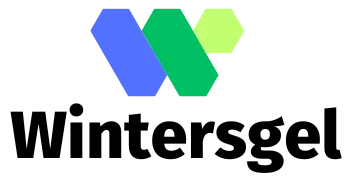C++ remains a cornerstone in the world of programming, powering everything from software applications to game development. With its blend of high-level and low-level features, it offers programmers the flexibility to create efficient and robust code. As technology continues to evolve, mastering C++ can open doors to numerous career opportunities and elevate one’s coding skills.
Enrolling in a C++ course provides a structured pathway to understanding this powerful language. Whether you’re a beginner looking to dive into programming or an experienced developer aiming to sharpen your skills, a well-designed course can cater to all levels. With hands-on projects and expert guidance, learners can gain practical experience that translates directly into real-world applications.
Overview of C++ Course
The C++ course offers a comprehensive curriculum designed to equip learners with essential programming skills. This course covers foundational concepts and advanced features of C++, facilitating a deep understanding of its applications.
Course Objectives
- Understand C++ syntax and structures
- Develop problem-solving skills through coding exercises
- Implement object-oriented programming principles effectively
- Create, compile, and debug C++ applications
- Work with data structures and algorithms
- Explore advanced topics like templates and exception handling
- Gain experience through hands-on projects relevant to real-world scenarios
Target Audience
- Beginners seeking to learn programming with C++
- Intermediate programmers aiming to enhance their skills in C++
- Software developers transitioning from other languages to C++
- Game developers interested in C++ for game engine development
- Professionals wanting to update their knowledge on modern C++ standards
Course Content

The C++ course provides a detailed curriculum that covers crucial programming concepts. This curriculum ensures that learners develop both theoretical knowledge and practical skills applicable in various scenarios.
Topics Covered
- C++ Syntax: Students explore basic syntax elements, including variables, data types, and control structures, essential for writing C++ programs.
- Object-Oriented Programming (OOP): Learners gain insights into classes, objects, inheritance, polymorphism, and encapsulation, vital for developing modular and reusable code.
- Data Structures: Participants study core data structures such as arrays, linked lists, stacks, and queues, enabling efficient data management and manipulation.
- Algorithms: The course includes algorithm design and analysis, teaching students how to implement sorting, searching, and optimization techniques.
- Memory Management: Students learn about dynamic memory allocation, pointers, and resource management, crucial for creating efficient applications.
- Standard Template Library (STL): Participants familiarize themselves with STL components, including containers, iterators, and algorithms, streamlining programming tasks.
Practical Assignments
- Hands-On Projects: Students engage in real-world programming projects, reinforcing the concepts learned throughout the course.
- Code Reviews: Participants receive constructive feedback on their code, fostering an environment for improvement and understanding best practices.
- Problem-Solving Exercises: Learners tackle coding challenges that enhance their analytical thinking and programming skills, preparing them for competitive scenarios.
- Group Collaborations: The course encourages teamwork through collaborative projects, promoting communication and skills sharing among peers.
- Simulated Environments: Students work in environments that mimic real-world programming contexts, ensuring they gain practical experience applicable in their careers.
Course Structure
This C++ course features a structured layout designed to maximize learning through a blend of theory and practical application. Each component of the course plays a vital role in developing programming skills necessary for various industry applications.
Duration and Schedule
The course spans 12 weeks, with classes held twice a week. Each session lasts 2 hours, balancing theory and hands-on practice. Regular assessments occur every three weeks to measure progress and reinforce learning. Flexibility in scheduling accommodates both weekday and weekend attendance options, catering to diverse learners’ needs.
Teaching Methods
The course employs a variety of teaching methods to enhance engagement and understanding.
- Lectures provide foundational knowledge on core C++ concepts.
- Hands-on projects offer real-world application, encouraging practice.
- Code reviews facilitate peer feedback and enhance coding skills.
- Problem-solving exercises promote critical thinking and algorithmic proficiency.
- Group collaborations enhance teamwork and communication skills.
- Simulated environments enable learners to experience coding challenges similar to industry scenarios.
These diverse methods ensure comprehensive coverage of C++ programming while fostering an interactive learning environment.
Instructor Qualifications
Qualified instructors lead the C++ course, bringing a wealth of knowledge and real-world experience in programming. Their expertise enhances the learning environment and helps students grasp complex concepts effectively.
Experience in C++
Instructors possess extensive experience in C++, demonstrating proficiency through years of professional work on various projects. They often have backgrounds in software development, game design, or systems programming. Many instructors hold advanced degrees in computer science or related fields. They regularly stay updated with the latest C++ standards and practices, ensuring students learn current industry trends. Previous experience may include roles as software engineers, project managers, or technical consultants, providing valuable insights into practical applications.
Teaching Style
Instructors employ an engaging teaching style that promotes active participation and collaboration. They utilize diverse instructional methods such as lectures, interactive coding sessions, and hands-on projects. Instructors encourage questions and discussions, fostering a supportive classroom atmosphere. They incorporate real-life scenarios and challenges, enhancing problem-solving skills. Feedback is given through code reviews and individual assessments, driving improvement. This dynamic approach ensures that students not only understand theory but can also apply concepts effectively in practical settings.
Student Feedback
Feedback from students showcases the effectiveness of the C++ course in enhancing programming skills. Students express appreciation for the structure, content, and instruction provided.
Positive Aspects
- Comprehensive Curriculum: Students highlight the extensive coverage of fundamental and advanced C++ topics, allowing them to grasp complex concepts easily.
- Engaging Instructors: Learners appreciate the instructors’ expertise and teaching methods, noting that their real-world experience makes the classes more relatable.
- Hands-On Projects: Participants commend the practical assignments, stating that working on projects reinforces theoretical knowledge and builds real-world skills.
- Supportive Learning Environment: Many students mention the collaborative atmosphere fostered within the classroom, encouraging participation and peer support.
- Flexible Scheduling: Attendees value the availability of weekday and weekend classes, accommodating diverse schedules and commitments.
Areas for Improvement
- Pacing of Classes: Some students suggest that certain topics could benefit from a slower pace to allow deeper understanding and retention of material.
- Additional Resources: A few learners express a desire for more supplementary materials, such as practice problems or additional reading resources, to enhance their study sessions.
- Assessment Feedback: Some participants seek more detailed feedback on assessments, allowing them to understand their mistakes and improve their skills more effectively.
Mastering C++ can open doors to numerous career opportunities in software and game development. Enrolling in a well-structured C++ course offers invaluable hands-on experience and expert guidance, making it an ideal choice for both beginners and seasoned developers.
With a focus on foundational concepts and advanced techniques, this course prepares students for real-world challenges. The diverse teaching methods and supportive environment foster an engaging learning experience, ensuring that participants not only understand theoretical concepts but also apply them effectively.
Investing time in a C++ course can significantly enhance programming skills and boost confidence, paving the way for future success in the tech industry.
